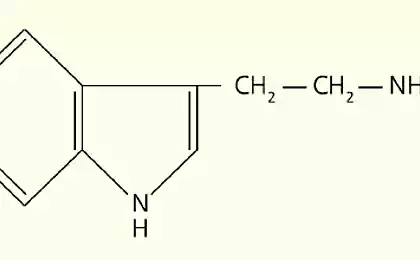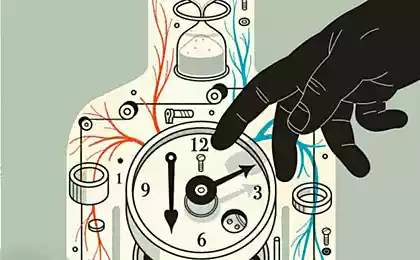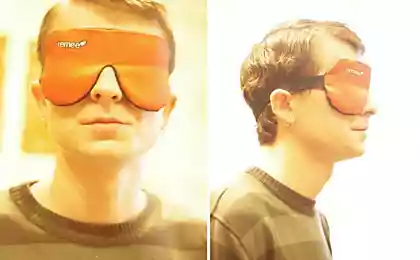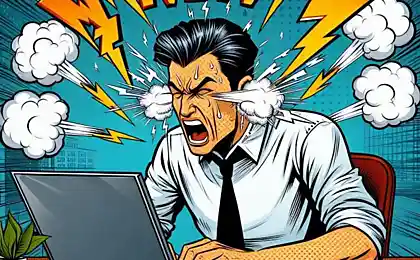182
Midnight Sabotage: 11 Evening Habits That Show Your Fatigue

When Night Becomes the Enemy: 11 Things You Think Are Innocuous
“Night is the mirror of day,” said the philosopher Plotinus. But 68 percent of people, according to the Sleep Foundation, unconsciously sabotage their vacation after sunset. Neuroscientists warn that seemingly harmless habits rearrange the brain to a chronic fatigue regime. Discover the enemies of your productivity masquerading as evening rituals.
1. Blue light: digital sunset instead of dawn
A Harvard Medical School study found that 2 hours in front of a screen at night reduced melatonin by 23%. Solution: After 21:00, turn on "night mode" + orange glasses. TV? Only documentaries without flares.

2. Late coffee: cheating cheerfulness
Caffeine breaks down in 5 hours. A cup at 20:00 = 50 mg of stimulant in the blood by 1:00 a.m. Alternative: Cocoa with magnesium or rooibos tea – they reduce cortisol by 12% (Journal of Clinical Biochemistry).
3. Intense training: an adrenaline storm
Evening crossfit increases body temperature by 1.5°C, disrupting sleep thermoregulation. According to the American Psychological Association, 45 minutes of yoga or tai chi is 2 times more effective for falling asleep.
4. Heavy Food: The Digestive Marathon
Fat steak at 22:00 makes the gastrointestinal tract work 70% more intensively. Council of gastroenterologists: if hungry - protein + fiber. Example: Greek yogurt with cucumber.

5. Emotional Talks: A Cortisol Cocktail
A fight before bed increases stress hormone levels by 39%, according to a study by Ohio University. Rule: After 20:00, only neutral topics. Conflict? Write down your thoughts in a notebook and put it off until morning.
6. Alcohol as a sleeping pill: the trap of falling asleep
A glass of cognac reduces REM sleep by 30%, causing a "sleeping hangover." Fact: Herbal chamomile tea increases deep sleep by 15% (European Neurology Journal).
7. Multitasking: Cognitive overheating
Email check + TV series + vacation planning = prefrontal cortex overload. Neuroscientists advise that after 21:00 - only linear actions. Example: coloring mandalas.
8. Hot shower: thermal shock for the body
Water above 40°C before bedtime disrupts the body’s natural cooling. Ideal scheme: warm shower 2 hours before bedtime + cool socks.
9. Bright light: cheating for circadian rhythms
100 watt chandeliers suppress melatonin more than smartphones. After 20:00, use 2700K dimmer lights. Candles? Only unscented soybeans.
10. Problem analysis: nocturnal brain vs logic
A University of California study found that evening decisions were 65 percent more emotional. Set up an "alarm envelope" - write problems and close until morning.
11. Obsessive Perfectionism: Incompleteness Syndrome
“Another 5 minutes of cleaning” activate the orbitofrontal cortex, which is responsible for obsessions. Advice: Say “It’s good enough for today” out loud – the phrase reduces anxiety by 40%.
How do you create an evening ritual? 4 Steps to Mindfulness
- From 19:00 to 23:00 – “digital care”: no notifications
- Temperature bridge: an hour before bedtime - airing + 18 ° C in the bedroom
- Earth Hour: candles instead of lamps, paper book
- Technique 4-7-8: Breathing to reboot the nervous system
Glossary
REM sleep
Rapid eye movement phase critical to emotional stability
Circadian rhythms
Biological Clock Regulating Sleep and Wake Cycles
cortisol
Stress hormone that affects metabolism and immunity
“Sleep is not a luxury, but a basic survival algorithm.” Matthew Walker, author of Why We Sleep
Humanity’s Red Code: 4 Hostile AI Images That Are Changing Your Perceptions of Technology
The Power of Silence: 8 Hidden Benefits of Being Alone























